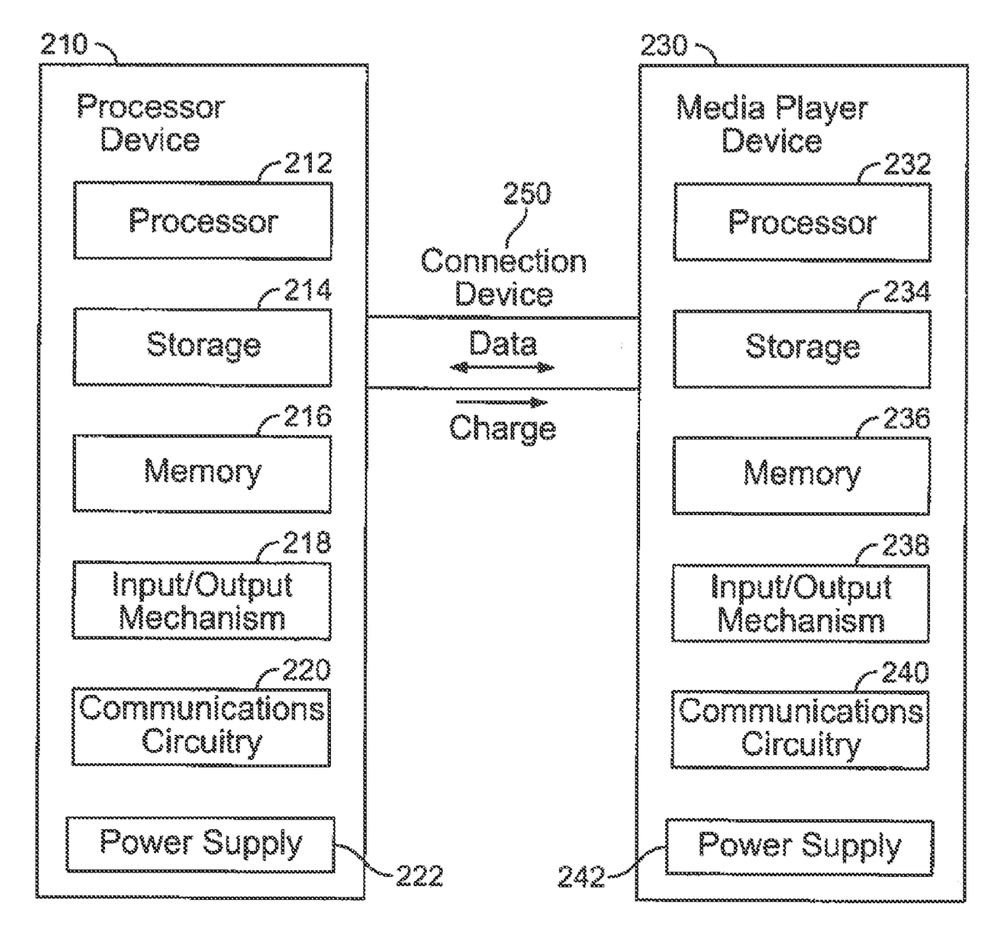Apple files for — and is granted — lots of patents by the U.S. Patent & Trademark Office. Many are for inventions that never see the light of day. However, you never can tell which ones will materialize in a real product, so here are today’s patent highlights:
Imagine a device like the Logitech Logi Base that not only charges an iPad, but also provides it with more processing power. Apple has been granted a patent (number 20160132288) for “using a processing device as a dock for a media player” that, in theory, could make an iOS device function more like a desktop computer when docked.

In the patent filing, Apple says that, by integrating multiple electronic devices, it’s possible to increase the functionality of the devices individually. For example, you could improve media playback functionality, create media playlists “on-the-go” and use a first device power supply (a dock/base) to charge the power supply of the second device (and iPhone or iPad). By integrating the devices, it’s possible to address some of the shortcomings of devices that are decreasing in size with increasing power requirements, while still maintaining the advantages that these devices offer.
Apple says users continue to rely more heavily on devices such as an iPad or iPhone for running media applications. However, different portable electronic devices may include different interfaces and functional capabilities, and smaller devices don’t always include the full functionality that their larger counterparts may offer.
For example, while a smaller device may be more portable and lightweight than its larger counterpart, it may not have circuitry available capable of adjusting media playlists or creating new media playlists “on-the go”, while a larger and more complex device might have these and other capabilities not associated with the smaller device. Apple’s invention includes systems and methods that take advantage of the capabilities of individual electronic devices and among other things, address the battery life, interface and interactivity issues previously mentioned.
Apple has also applied for a patent (number 20160132030) for “aggregating user routines in an automated environment.” It involves an automated smart home system — no doubt, using the company’s HomeKit technology — that could track individual users as they use various “smart” devices and react accordingly.

With the invention, automated behaviors in an environment can be implemented based on aggregation of individual user routines. For example, mobile devices used by users in the environment can provide information about the users’ behavior patterns to a coordinator device that can be located in the environment. The coordinator device can analyze the information to detect an aggregate pattern that involves multiple mobile devices and/or multiple users. Based on a detected aggregate patterns, the coordinator can identify behaviors to automate.
The user can interact with an accessory by operating a controller that can communicate message to the accessory in response to user input. In some instances, accessory operation can be automated. For example, a controller can be programmed to automatically instruct an accessory to initiate a specific action when certain triggering conditions are met, such as turning on a heating system or changing a thermostat’s target temperature at a particular time, or turning on a light if the controller detects an ambient light level below a threshold. One or more controller devices can also act as a “coordinator” to manage communications between multiple controllers and multiple accessories.
Classic protection: Pad & Quill’s Little Pocket Book for iPhone® SE Case
